Responding to the concerns of National Assembly delegates about whether amending the Electricity Law can prevent monopoly, the Deputy Minister of Industry and Trade said that the State will only maintain a monopoly in some core areas, such as regulating and operating the electricity system, and the rest will be socialized.
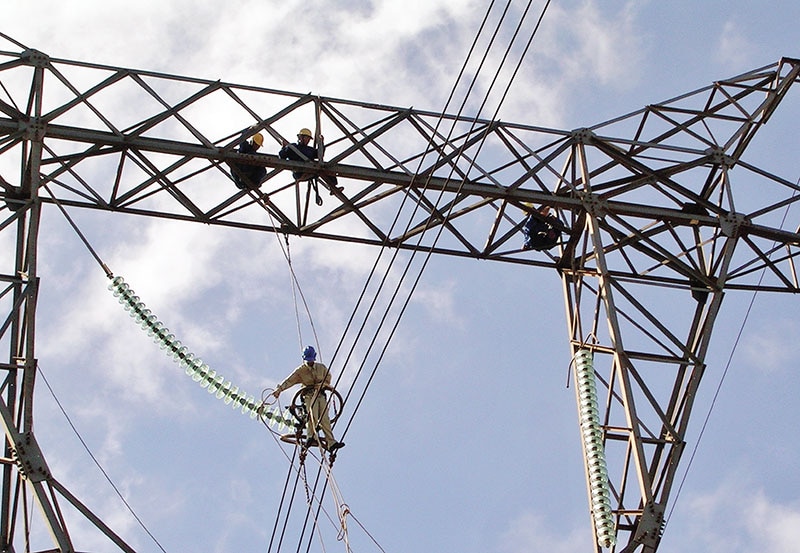 |
| The State only monopolizes high-voltage and ultra-high-voltage grids (35 kV or higher), while interconnecting lines will be socialized. |
How monopoly state?
With the hope of being approved at the 8th session of the National Assembly (next October), the Draft Law on Electricity Amendment (Draft) was just commented on at the Conference of National Assembly Deputies last week. This can be considered an "exception", because according to the practice, the Conference of National Assembly Deputies only comments on draft laws that have been discussed by the National Assembly for the first time and are about to be approved at the nearest National Assembly session.
Although it was brought up for discussion for the first time, and many important and sensitive contents were expected to be amended, because the draft law was sent to delegates too urgently, only 4 people directly participated in giving opinions on some major policies, including reducing monopoly.
Clause 4, Article 5 (State policy on electricity development) of the Draft clearly states: “Eliminate all monopolies and unreasonable barriers, implement maximum socialization in investment, exploitation and use of infrastructure services of the national electricity transmission system on the basis of ensuring national defense and security. Attract all economic sectors to participate in investing in the construction of power source projects and power grids according to the electricity development plan, power supply network development plan, plan for implementing the electricity development plan, electricity generation, electricity distribution, electricity wholesale and retail. Non-state economic sectors are allowed to operate the power grids they invest in and build according to the provisions of law”.
Also according to Article 5, the State only holds the monopoly on power system dispatch, investment in nuclear power projects, multi-purpose hydropower projects, emergency power sources and grids, and important power transmission grids from 220 kV and above. The State also has the monopoly on operating the power transmission grid, except for power grids invested and built by private economic sectors.
“Will this amendment to the Electricity Law prevent monopoly? To what extent will the State monopolize it and how will it hand over investment to other economic sectors?”, asked Delegate Dinh Ngoc Minh, a full-time member of the National Assembly’s Economic Committee.
According to delegate Dinh Ngoc Minh, the telecommunications industry has done a “very good job” of abandoning its monopoly. “A few decades ago, making a phone call cost several thousand dong. A month’s salary would have run out of phone usage. But now it is very comfortable and very good,” Mr. Minh acknowledged.
Regarding electricity, Mr. Minh commented that the draft stipulates a State monopoly in electricity transmission, but has not specified at what level. "When will the monopoly end, when will there be fewer regulations so that the private sector can participate more in the market and everything must be transparent?", Mr. Minh asked.
In the review report, the Standing Committee of the National Assembly's Committee on Science, Technology and Environment said that it is necessary to review and clarify the policies stipulated in Article 5 to ensure feasibility and facilitate the mobilization of investors and more effective state management. Specifically, the State should not monopolize the entire transmission part, but should only monopolize the high-voltage and ultra-high-voltage transmission part (from 35 kV and above).
Explaining this issue, Deputy Minister of Industry and Trade Truong Thanh Hoai said that Article 5 clearly stipulates which aspects and stages the State will monopolize in electricity development. Accordingly, the State will mainly monopolize the dispatch of the electricity system. In investment, the State will monopolize multi-purpose projects and important works to ensure stable operation of the national electricity system, such as the Hoa Binh, Son La, and Lai Chau hydropower plants.
Regarding the monopoly in electricity transmission, Mr. Hoai said that the State only monopolizes high-voltage and ultra-high-voltage grids (over 35 kV), while interconnecting lines will be socialized. To ensure the energy security goal according to Resolution No. 55-NQ/TW of the Politburo, some core areas will have to be state-monopolized, while other areas will be socialized.
“Minimize monopoly while still ensuring energy safety and security according to the Party and State's direction,” said Deputy Minister Truong Thanh Hoai.
The representative of the drafting agency also added that in reality, EVN's power source only accounts for 38% of the total capacity of the national power system. Vietnam is gradually forming competitive electricity markets to ensure publicity and transparency. From the beginning of August 2024, the National Power System Dispatch Center (A0) will be transferred from EVN to the Ministry of Industry and Trade. Therefore, EVN and the corporations participating in the electricity market are normal entities.
However, the Standing Committee of the National Assembly's Committee on Science, Technology and Environment proposed that the drafting agency review the regulation on the State's monopoly on investment in multi-purpose hydropower plant projects, emergency power source projects, and emergency power grids, because such a regulation is too broad in scope and will limit opportunities to mobilize social resources for electricity development.
Market price so that EVN has no place to blame when it suffers losses.
In this amendment, electricity price is also an issue of great concern to National Assembly agencies and National Assembly deputies.
The draft stipulates that electricity prices are implemented according to market mechanisms with State regulation, in accordance with the development level of the competitive electricity market. Commenting that this is a new point, which is currently not implemented, delegate Pham Van Hoa (Dong Thap) emphasized: "It is necessary to apply market prices so that in the future, the electricity industry will no longer blame the fact that it is always losing money because of subsidized electricity prices."
The Dong Thap delegate said that when electricity prices are implemented according to market mechanisms, losses can be calculated and can be "handled immediately", which is a very important and necessary issue. However, Mr. Hoa noted that for policy beneficiaries and those in difficulty, the State still has to take care to ensure social security.
“Following the market mechanism, electricity consumers do not say whether the electricity price is high or low, and the electricity seller, the electricity company, does not say that it sells subsidized electricity, so it suffers losses. I strongly agree with the upcoming regulations on electricity trading in the direction of a competitive market,” Mr. Hoa said.
Responding to this opinion, Deputy Minister of Industry and Trade Truong Thanh Hoai said that the electricity price in the Draft has been designed to fully reflect costs and minimize cross-subsidy. “Electricity price is market-oriented. In the Draft, the competitive wholesale market, competitive retail market, and market levels have been fully designed,” Deputy Minister Hoai added.
Regarding electricity prices, the Standing Committee of the National Assembly's Committee on Science, Technology and Environment proposed to study and supplement specific regulations on ensuring a stable electricity price structure and a two-component electricity price mechanism. "The draft needs to stipulate clear principles and roadmaps for eliminating cross-subsidy between customer groups, ensuring social equality and ensuring market principles, and encouraging electricity saving in the manufacturing industry," according to the Standing Committee of the appraisal agency.
In addition, the Standing Committee of the National Assembly's Committee on Science, Technology and Environment also said that most of the regulations on electricity prices are assigned to the Ministry of Industry and Trade to develop and appraise, as in the 2004 Electricity Law. However, the development and implementation of electricity prices are not really effective, and all components of electricity prices are not transparent, which is one of the prerequisites to ensure fairness and transparency of the competitive electricity market.
Therefore, the Standing Committee of the Appraisal Agency recommends that the drafting agency study and supplement the criteria for determining retail electricity prices to ensure fairness and the principle of competitive electricity market between sellers and buyers. The draft needs to stipulate the responsibility for public transparency of prices (electricity transmission, electricity distribution, power system dispatch and electricity market transaction management, and prices of auxiliary services for the power system).
According to the Standing Committee of the appraisal agency, it is necessary to review regulations on authority, form and method of pricing for electricity prices and prices of electricity services to ensure consistency with the provisions of the Law on Prices in the direction of the Prime Minister deciding on the wholesale electricity price framework, retail electricity price framework, power generation price framework, and prices of electricity services.
The Ministry of Industry and Trade shall preside over and coordinate with the Ministry of Finance to submit to the Prime Minister for decision on electricity prices and prices of electricity services, and guide power units in formulating and promulgating electricity prices according to their authority. At the same time, research and consider adding a mechanism to balance and stabilize electricity prices (possibly a fund or account for balancing electricity prices).
The Government submitted to the National Assembly for consideration and approval the Draft Law on Electricity Amendments at the 8th Session. The Standing Committee of the Review Committee and a number of National Assembly Committees said that the timeframe was relatively urgent, while the overall scope of the amendments, including 6 major and sensitive policy groups, had a direct and comprehensive impact on people's lives, production and business activities, the electricity market and electricity prices; ensuring safety in the production, business and consumption of electricity.
Therefore, it is proposed to pass the Law at 2 sessions (passed at the 9th Session in May 2025) to have enough time for research, discussion, consultation with affected subjects, absorption, revision, and completion of the Law Project to ensure quality, feasibility, and meet the requirements of socio-economic development of the country.
Source: https://baodautu.vn/se-giam-toi-da-doc-quyen-trong-nganh-dien-d223875.html


![[Photo] Keep your warehouse safe in all situations](https://vphoto.vietnam.vn/thumb/1200x675/vietnam/resource/IMAGE/2025/10/1/3eb4eceafe68497989865e7faa4e4d0e)



![[Photo] President of the Cuban National Assembly visits President Ho Chi Minh's Mausoleum](https://vphoto.vietnam.vn/thumb/1200x675/vietnam/resource/IMAGE/2025/10/1/39f1142310fc4dae9e3de4fcc9ac2ed0)
![[Photo] Hanoi morning of October 1: Prolonged flooding, people wade to work](https://vphoto.vietnam.vn/thumb/1200x675/vietnam/resource/IMAGE/2025/10/1/189be28938e3493fa26b2938efa2059e)
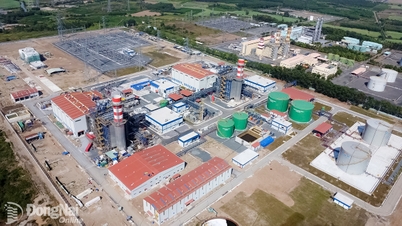

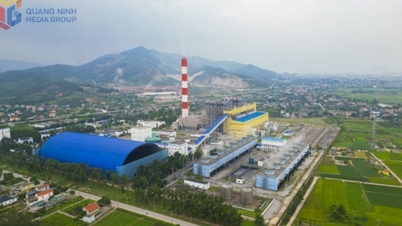

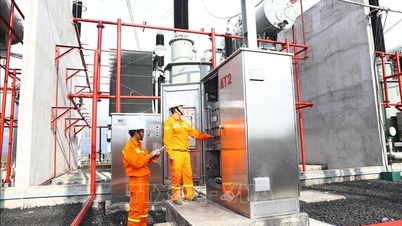



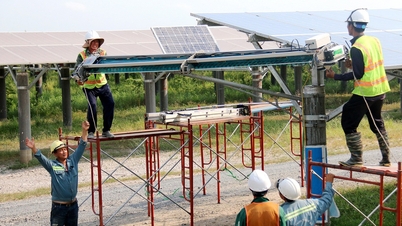





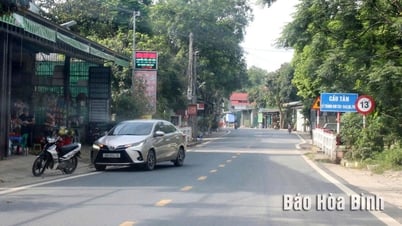


















































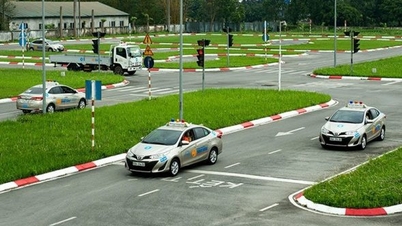




![[Infographics] An Giang Agriculture 2020-2025: Stable growth, quality transformation](https://vphoto.vietnam.vn/thumb/402x226/vietnam/resource/IMAGE/2025/10/1/bf3a77ba3a0243a697e5253ed4cd6f9c)

















Comment (0)